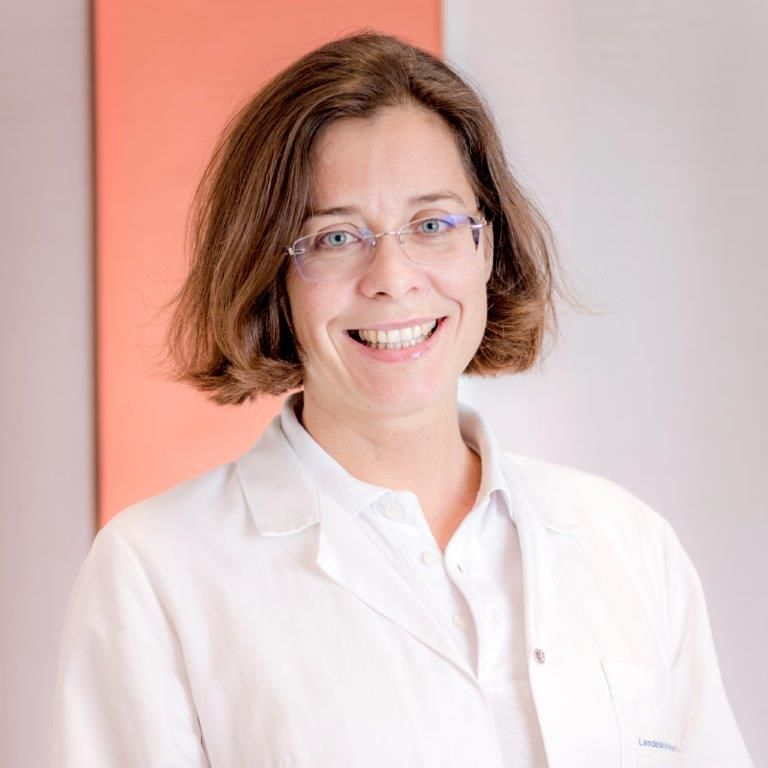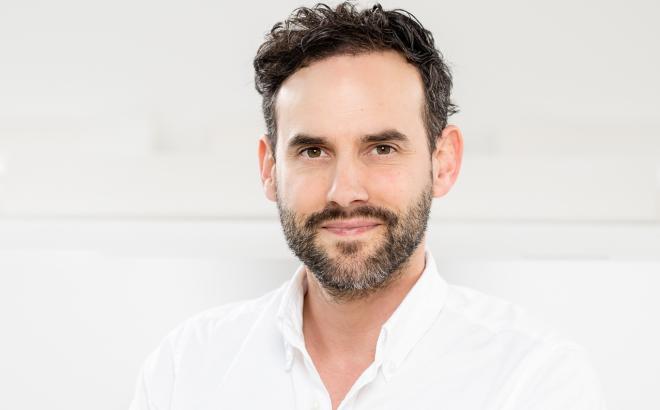Gudrun Kreye, Palliative Care Doctor
Strengthening palliative care in hospitals and in science
Senior physician and private lecturer Dr Gudrun Kreye is Head of the Palliative Care Unit at the Clinical Department for Internal Medicine 2 at Krems University Hospital. She is also Chair of the Austrian Palliative Care Society’s working group ‘Research in Palliative Care’, and from 2018 to 2022 was Acting Head of the European Society for Medical Oncology's ‘Designated Centres Working Group’.
“Improving palliative care for patients is a big concern for me. Discovering how patients cope with stressful symptoms and how we can positively influence the quality of life of ill people and their dependants is the central focus of my work. Standards in palliative care need to be developed and implemented in order to achieve widespread improvements”, explains private lecturer Gudrun Kreye. Research is being conducted at the Clinical Departments for Internal Medicine into the frequency of patients with incurable illnesses. Evaluating which of these patients need palliative care, and which of those, in turn, have been prescribed palliative care, leads to a better screening process and thereby to more targeted care in the future. “Palliative care depends on a multi-agency approach. Doctors, nurses, psychologists, psychotherapists, social workers, dieticians and volunteers work together to not only relieve physical symptoms but also to offer patients a holistic care package”, explains Dr Kreye. “One of our research questions is how to determine the ideal point at which to involve palliative teams or specialist palliative teams for patients with a life-shortening illness. As well as individual factors that affect the progress of an illness, it is also a question of finding the optimum distribution of available resources. The scarcity of resources and the increasing demand for palliative care are, likewise, subjects of palliative care research.” When senior physician Kreye talks about the range of projects on which medical students regularly collaborate and base their dissertations on, it soon becomes clear what a varied field of study palliative care is: “I would like to show our students not only what exciting research questions are waiting to be answered in the field of palliative medicine, but also how multi-faceted palliative care is. It’s about much more than death. It’s a field in which one is likely to have many bad experiences, but at the same time, a great many beautiful experiences; and that is what makes palliative care so rich and what makes one so grateful.”
Breathing difficulties in palliative care patients is a focus of Dr Kreye’s research. Research and palliative medicines still seem to many a strange combination. For Dr Kreye, this life-path presented itself to her when still a child. “As a girl I was interested in plants, stones and animals, observing them and keeping little records. I just found it interesting,” recalls the senior physician about her marked and innate urge to find things out. At 16 she had a life-changing experience: “My Grandmother died. As a qualified nurse, my mother was able to make it possible for her, with our help, to die at home. I was very touched by it and it became clear to me that that was exactly what I wanted to do: to help people shape their end-of-life experience in the best and most personal way.” For a long time, Kreye toyed with the idea of studying molecular genetics, a field which she still describes as her hobby horse. In the end she decided in favour of medicine and in 1998 she gained her doctorate at the Medical University in Vienna. As a research associate there she wrote her dissertation on drug resistance in malignant diseases. She did further research in the field of drug resistance and as a post-doc obtained a Herta Firnberg scholarship, which enabled her to study prognostic markers in breast and ovarian cancer. Subsequently Kreye moved to the Wilhelmin Hospital in Vienna, where she completed her specialist medical training in Internal Medicine 1. Meanwhile the researcher completed a one-year, lab-based research project on the molecular genetics of female reproductive cancer at Johns Hopkins University in Baltimore, USA. After that came her habilitation, or post-doctoral qualification for teaching in higher education, in the field of Oncology at the Medical University in Vienna and a further research scholarship in Cardiff (Wales) in the field of Palliative Care at the Velindre Cancer Centre. Subsequently she ended up as a post-doc researcher and doctor at the Department for Palliative Medicine at the University of Göttingen, Germany. In 2010 she moved to Krems University Hospital, where both the former director of the Clinical Department for Internal Medicine 2 and the current director, Professor Martin Pecherstorfer, promised her the post of Head of the Palliative Care Unit, a role which she started in 2014. “At first, I thought that was the end of my research career. When the hospital subsequently became a university hospital and students kept enquiring about Masters placements, new possibilities and ideas emerged,” Kreye says happily as she reflects on the research activity at the department.
“If I had to choose between lab work and clinical research, I would choose lab work. It has always had a particular attraction for me and I have found it a lot of fun. I feel most fulfilled working with people, and I am happy to be doing clinical research here. It enables me to give patients the best possible care and to work on my research questions with young, motivated students, and thereby to build up, establish and strengthen palliative care in a clinical setting and in science.”
Link to the KL research information system KRIS

OÄ PD Dr. Gudrun Kreye MBA
Division of Internal Medicine 2 (University Hospital Krems)




